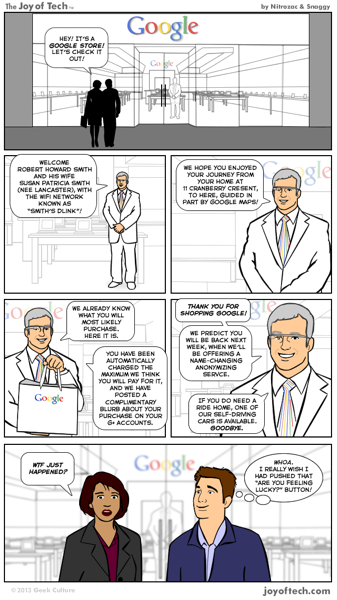
How to safeguard your data in cyberspace
Businesses also have a responsibility to protect customers. As one contributor said, the term “identity theft” is now commonplace to describe what happens when a fraudster manages to pose as someone else, whether online or in a financial transaction. How identity is verified sits at the heart of internet security. Could using a login from a big internet identity such as Facebook or Google to access other websites be the answer?
“You can use Facebook to log in to a bunch of things. I’ve never used it, though it pops up all the time, because intrinsically I don’t trust it, I don’t like it, I don’t think it is a good idea,” said one panel member.
It’s amazing that such obvious statement had to come from a “security guru” in a security roundtable for people pay notice to it. You really shouldn’t use Facebook in the first place but if you do, don’t allow any other site or app to have access to it and don’t use it as some sort of universal key. You’re just inviting yourself to a lot of pain.
“Gift”
Browser plug-in and website warn about data harvesting by Facebook apps
The App Advisor Security Network website has profiles on more than 500,000 third-party Facebook applications that describe the user data they collect, what actions they can take and whether they are considered unsafe. The application profiles also display user ratings.
Meanwhile, the App Advisor browser extension, which works with Safari, Firefox and Chrome, gets activated when users visit either application sites or call up an application’s page in the Facebook App Center.
Why Do Copyright Industry Profits Get To Be The Yardstick For Civil Liberties?
“The role of any entrepreneur is to make money given the contemporary constraints of society and technology. They do not get to dismantle civil liberties, even if – and perhaps especially if – they are unable to make money in the face of sustained civil liberties.”
“Now they resort to logic! By God man, where will this end?” – says the Big Media executive…
“Google doesn’t get people, it sells them”
““What is Google? What do they sell?” asks Don Norman, the author of The Design of Everyday Things and a demigod of the design world.
“They have lots of people, lots of servers, they have Android, they have Google Docs, they just bought Motorola. Most people would say ‘we’re the users, and the product is advertising’,” he said. “But in fact the advertisers are the users and you are the product.””
Don Norman — Tech News and Analysis
Via Daring Fireball
Brilliant
So, how do you like them apples in Real Life?
